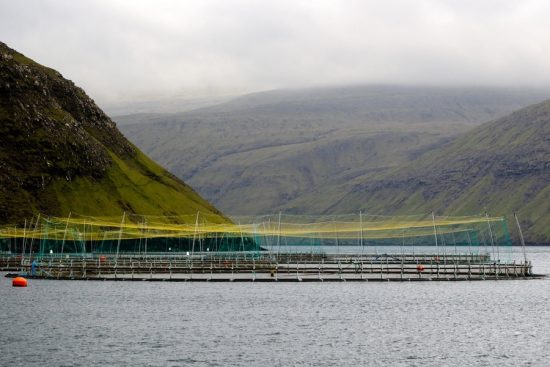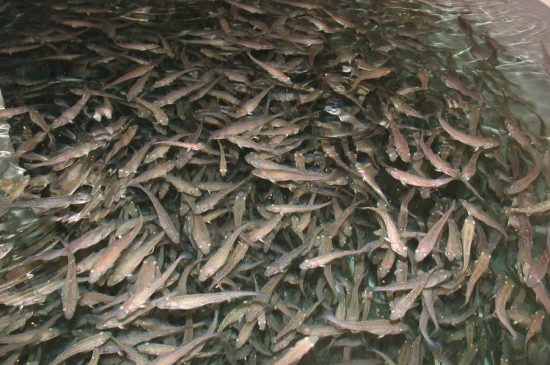



Study calculates development of fish stocks
In the long term, the wild fish population cannot be sustained by
increasing aquaculture efforts, as other factors like rising demand for
fish and improved fishing techniques would still restrict their
population.
This conclusion was reached by researchers from GEOMAR Helmholtz Centre for Ocean Research Kiel and University of Helsinki.
In a recent study, economists, fishery and evolutionary biologists from
the two universities calculated how trends in fishing and aquaculture
would develop by 2048 and beyond for fish stocks like sea bass, salmon,
cod and tuna.
These four species were chosen as they were the most essential fish
species for North American and European markets: Salmon and seabass are
derived from fish farming, while the cod and tuna are caught in the
wild.
Besides biological factors, technological progress in fishing, the
rising global demand for fish and the growing supply of fish from
aquaculture were also considered.
Lead author Professor Dr. Martin Quaas, at the University of Kiel said
that they wanted to get a realistic forecast of how the wild fish
stocks would develop if the biological and economic factors were
considered. Over the course of the research, the team concluded that
economic development had a much stronger impact than previously
expected.
Although increasing aquaculture production can alleviate this impact,
its effects would be overshadowed by greater demand and technological
advances in fishing methods. If current trends persist, aquaculture
production would need to increase by 15 to 24 per cent annually to
sustain stock levels.
Co-author Thorsten Reusch from GEOMAR Helmholtz Centre for Ocean
Research Kiel added in German, “Even if we start with very optimistic
figures and increasing amounts of vegetable protein, the pressure to
feed the population using fish stocks would be enormous and lead to
their collapse.”
However, a sustainable use of wild fish stocks could be achieved if
there is a substantial improvement in the effectiveness of fisheries
management. According to the researchers, an institutional change would
be the only solution, as it would significantly bring about this
effectiveness.
The recent reform of the Common Fisheries Policy of the European Union
is a step in the right direction. One of the reform’s directives was
the introduction of multi-annual management plans for other stocks.
The researchers also proposed that urgent action was needed in the area
of deep-sea fishing, by improving the international coordination
involved when defining and enforcing quotas.
 Mares
Mares 16th September 2015
16th September 2015